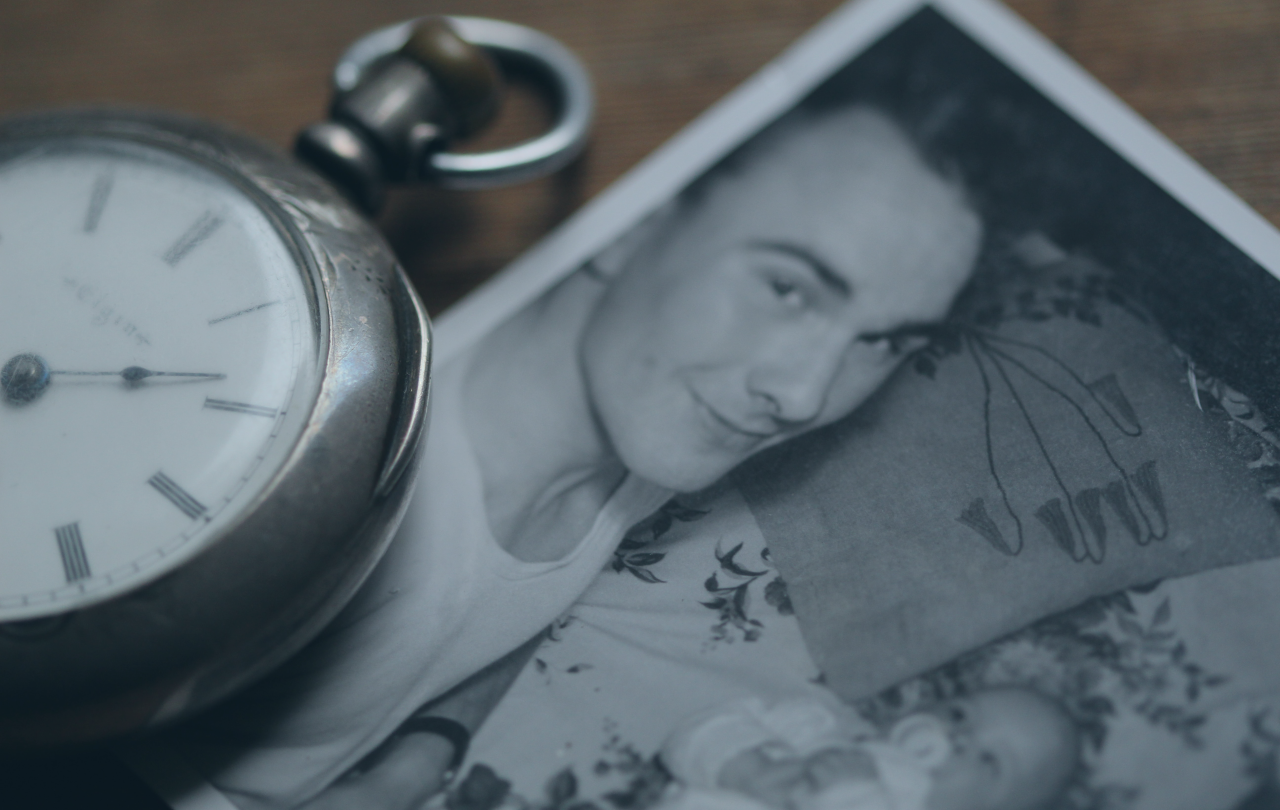
The death of my dad was sudden and unexpected. I don’t know why it is that, from the moment he died, I have had to fight the almost irresistible urge to refer to him as father- a term of address I never used about him or to him during his life.
Perhaps in some psychotherapy session at some point my therapist referred to my ‘father’, and I may have followed suit. And maybe occasionally when socialising with those who seemed a cut above my largely lower-middle class background, I called him father so as to avoid the flat northern vowel sounds that would expose me as an interloper. But that was just to fit in- on all other occasions he was decidedly not father and definitely just good old plain, dad.
At death he became a classic, a museum piece, a part of history, not the dad who taught me how to ride a bike.
But for some reason the moment he died, it felt like dad wasn’t enough. I now had to call him father - those were the rules. At death he became a classic, a museum piece, a part of history, not the dad who taught me how to ride a bike by panting and sweating my five-year old self round the block, but the father who taught me to be… a man, or something like that.
The F-word has gravitas, presence, authority. Dads are human, often bewildered, occasionally pissed off, eminently huggable, easily taken for granted - just there. Admittedly, Freud would have lost significant gravitas if oedipal theory had considered common-all-garden dads and not cigar-smoking brandy-swilling fathers. And no doubt the climactic scene of The Empire Strikes Back would have lacked considerable pathos had Darth Vader casually quipped, ‘No Luke, I’m your’re Dad’.
The curse of the martyr, write Albert Camus, was to have other people tell their story. The principle doesn’t just apply to martyrs, it’s true of all those who die. To be dead is to become a character in other people’s anecdotes. That’s the really annoying thing about dying, we become a topic of gossip, people get to talk about us without the courtesy of ever having to talk to us. We become object, no longer subject. I think that’s why I resist calling my late Dad, Father. It objectifies him, makes of him something that he wasn’t. It, most definitely fails to do justice to all that he meant to me.
She simply said, ‘It’s your Dad’, and held me tight in a hug that lasted longer than usually permitted in polite company.
I say he died suddenly. It was a Sunday morning. I was in church at the time. Actually, worse than that, I was on stage speaking to a church. As a psychologist working in academia, I teach and train all kinds of people in every kind of organisation imaginable, but every now and then I get to speak in churches.
On this occasion I was talking about character, the positive qualities of being – like love, gratitude, hope, wisdom and so on – that make life worth living. When I stepped off the stage my wife was waving to me from the back of the room, which was weird given that we don’t go to that church and she hadn’t come with me. When I wandered to the back of the auditorium wearing my ‘what are you doing here?’ face, she simply said, ‘It’s your Dad’, and held me tight in a hug that lasted longer than usually permitted in polite company. For someone who prides himself on social insight, it shames me to say that it took a while for the penny to drop. We were in the car with the engine running before it finally dawned on me what she meant.
I try not to make too much of divine timings or fate, but there was something odd in the timing of getting that news. In that month I had addressed church congregations three Sundays in a row- which, as someone who is generally lazy and prefers not to work weekends, is an unusually intense frequency. But over three successive Sundays I had reflected aloud with those congregations that there were prayers that had accompanied the various stages of my life. Prayers that I found myself praying, almost as if they were prayed through me, as if they had chosen me rather than I they.
In my twenties I had found myself praying as regularly as a heartbeat, ‘God do whatever you need to do with me, to make me into the person you would like me to be.’ It was a radical invitation for God to put me through whatever was needed to become who I was meant to be. But then the prayer faded. Its visit was over, it had done its work and it moved on. But as I addressed the congregations on those three Sundays I mused aloud that while the prayer of my twenties had departed decades before, I found a new prayer stirring in my forties. Now as the father of teenage boys, my new prayer was, ‘God do whatever you need to do with me to make me the father you would like me to be.’
In the weeks that followed, people asked me whether I had had a good relationship with my dad. The most accurately answer was: we had the best relationship of which we were both capable. We both tried in our own ways to deepen our connection, but we were like the lovers in a romantic comedy; we always managed to miss each other. When he tried with me, I didn’t want to know. For several years, he left a book lying around at home that he wanted me to read. I never saw anyone touch it, but it moved around the house under its own steam. It was by my bedside, in the toilet, on the dining room table… Macavity the Mystery Cat would have been proud. It was called, Things We Wish We Had Said. We may have wished, but we didn’t say. I never read it. Years later, when I tried with him, he was too flustered to respond. Both of us in our own ways lacked the courage to connect any deeper. But I was never in any doubt that he loved me, and I him.
When he was alive I was most aware of how different we were. I defined myself in opposition to whatever he was. If he was gentle, I was assertive. If he was indecisive, I was ambitious.
He died of a heart attack on a Sunday morning asleep in bed, while my Mum was at church. Almost immediately his absence prompted a profound change of consciousness in me. When he was alive I was most aware of how different we were. I defined myself in opposition to whatever he was. If he was gentle, I was assertive. If he was indecisive, I was ambitious. If he was inexpressive, I was articulate. If he was like that, I was like this. And yet, almost at the very moment of his death, a reversal of awareness occurred. I started to see just how very much like him I was. His gentleness, his uncertainty, his scepticism, his care, his humour, were all mine.
There is a rule in family therapy, that adult children relating to their parents should set their expectations to zero. We never truly see our parents until we stop viewing them through the lens of our own desires; what we wanted from them but never got. Until we do that our lives don’t really work, we sit around waiting for an impossible transformation, a payday that never comes, the moment our parents become exactly how we would like them to be, not as they are. For me, that moment of acceptance for dad only came when he was gone, I accepted him as he was when there was nothing left to accept. I don’t write this with any great sense of guilt or regret at opportunities lost, more with a sense of gratitude for what was given but often taken for granted.
Oddly though, in the shadow of that seismic shift in my interior furniture, I detected the stirrings of an answer to my own prayer to be a better father. No longer compelled to define myself in contrast to what he was, I was freed to be what I was- both like and unlike him, and to be fair, more like him than I cared to admit. At some visceral level I came to appreciate how much of myself originated with him. I came to accept myself as a dad and my dad as a father.





